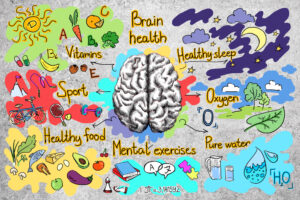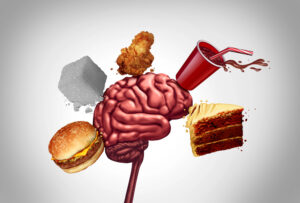Nutrition myths: What you should know. Food myths. Nutrition myths abound in the realm of health and wellness. They’re often shared with good intentions, but they can lead to confusion and misguided choices.
These myths can range from demonizing certain food groups to promoting ‘miracle’ weight loss foods. They can make navigating the path to a healthy diet seem daunting.
This article aims to debunk some of the most common nutrition myths. We’ll provide evidence-based information to help you make informed dietary decisions.
We’ll tackle myths about carbohydrates, fats, meal timing, and more. We’ll also discuss the role of individual differences in nutrition and the importance of a balanced diet.
By the end of this article, you’ll be better equipped to separate nutrition facts from fiction. You’ll be empowered to make healthier choices that align with your health goals.
Remember, knowledge is power, especially when it comes to nutrition. Let’s debunk these nutrition myths together.
Nutrition Myths: What You Should Know
Understanding Nutrition Myths
Nutrition myths are widespread misconceptions about food and diet. They often stem from simple or outdated science, anecdotal evidence, or false information research.
These myths can influence our dietary choices, often leading us away from balanced, healthy eating. By understanding and debunking these myths, we can make more informed decisions about our nutrition. This can help us achieve our health goals and maintain a healthier lifestyle.

Nutrition Myths: What You Should Know.
Impact of Myths on Health
Nutrition Myths: What You Should Know. Nutrition myths can have a significant impact on our health.
They can cause us to miss important nutrients, eat too many of some foods, or develop bad eating habits.
Over time, these misguided practices can contribute to nutritional deficiencies, weight gain, and increased risk of chronic diseases. Therefore, debunking nutrition myths is crucial for promoting public health and individual well-being.

Top 10 Nutrition Myths Experts Wish Would Die
Nutrition Myths: What You Should Know. Information is also rampant in the world of nutrition. Here, we debunk the top 10 nutrition myths experts wish would die.

Myth 1: Carbohydrates Are Bad for You
Carbohydrates often get a bad rap. Many believe they lead to weight gain and should be avoided.
Fact: Carbohydrates are a necessary part of a balanced diet. They provide essential energy for our bodies.
Myth 2: High-Fat Foods Are Always Unhealthy
Many people associate high-fat foods with poor health and obesity.
Fact: Healthy fats in foods like avocados and nuts are crucial for brain health and can be part of a balanced diet.
Myth 3: You Need to Eat ‘Clean’ to Be Healthy
‘Clean eating’ suggests that some foods are ‘dirty’ or ‘bad’.
Fact: Balance and moderation are essential. Occasional indulgences can be part of a healthy diet.
Myth 4: Supplements Can Replace a Balanced Diet
Some believe popping a daily nutrient can make up for a poor diet.
Fact: Supplements are intended to fill dietary gaps, not substitute whole foods.
Myth 5: Eating Late at Night Leads to Weight Gain
Many fear that late-night snacking will pack on the pounds.
Fact: Total caloric intake matters more than meal timing for weight management.
Myth 6: Detox Diets Are Necessary for Cleansing the Body
Detox diets are often marketed as a quick fix to flush toxins from the body.
Fact: The body has efficient detox systems like the liver and kidneys.
Myth 7: Certain Foods Can Boost Digestion and Lead to Rapid Weight Loss
Some believe that eating certain foods can significantly speed up digestion.
Fact: No magic foods can significantly alter digestion. A balanced diet and exercise are essential.
Myth 8: Gluten-Free Diets Are Healthier for Everyone
Gluten-free diets have gained popularity, with many believing they offer health benefits for all.
Fact: Gluten-free diets are essential for those with celiac disease, not necessarily for the general population.
Myth 9: Dairy Is Bad for Adults
Some argue that adults should avoid dairy products.
Fact: Dairy can be a valuable source of calcium and protein unless you’re lactose intolerant or allergic.
Myth 10: Skipping Meals Is an Effective Weight Loss Strategy
Skipping meals is often seen as a quick way to lose weight.
Fact: Skipping meals can lead to overeating later and disrupt metabolic rate. It’s not an effective or healthy weight loss strategy.

THE SMOOTHIE DIET is a new system that promises to help you lose weight and feel great. It can transform your life and make you feel better than ever before.
Nutrition Myths: What You Should Know. Identify Reliable Information
Nutrition myths: What you should know. In the age of information overload, it’s crucial to discern reliable nutrition advice from myths. Always look for information backed by scientific research.
Be wary of sensational claims that promise quick fixes. Nutrition is complex and individualized, and what works for one person may not work for another.
Lastly, consult with a registered dietitian or nutritionist for personalized advice. These trained professionals can provide evidence-based guidance tailored to your unique needs and health goals.

Conclusion: Embracing Evidence-Based Nutrition
Nutrition myths: What you should know. In conclusion, it’s essential to approach nutrition critically. Don’t fall for the allure of quick fixes and sensational claims.
Embrace evidence-based nutrition. It’s the key to making informed dietary choices that support your health and well-being.
